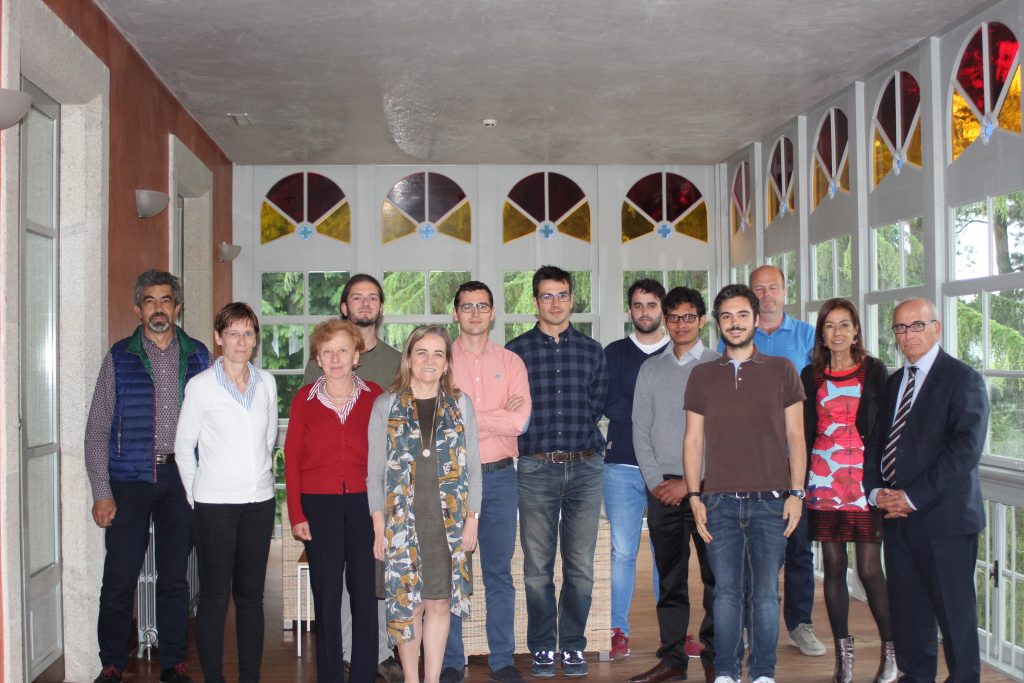• The New European research project 2-INTRATARGET, coordinated by Prof. María José Alonso and involving five academic and industrial partners, has celebrated the first face-to-face meeting at the University of Santiago de Compostela, on June 8.
• This public-private European Consortium will develop new nanostructures to deliver selected cancer immunotherapies, such as polynucleotides, to their intracellular targets inside cancer cells and into tumor associated macrophages (TAMs), both at the primary tumor site and in their metastatic niches.
• Four European Countries (Spain, Italy, Norway and Turkey) invests €1,5 million over the next 3 years, to enable greater progress in the treatment of lung and pancreatic tumors and their metastasis.
Santiago de Compostela, 8 June 2018 – Despite improvements in diagnosis and therapies, cancer is still the most fatal disease worldwide with 13.1 million deaths being predicted by 2030. Cancer Immunotherapy represents, nowadays the most promising oncological therapy since the development of the first chemotherapies in the 1940s. This concept has been mainly associated to the development of PD-1 immune checkpoint inhibitors, which have been marketed for the treatment of lung and pancreatic cancer, among other types of cancer. However, the concept of immunotherapy is being expanded and associated with the administration of a variety of biomolecules, including nucleotides targeted both, to cancer cells and/or immunocompetent cells. Unfortunately, so far the exploitation of these therapies has been limited by their difficult access to the right tissue and their poor capacity to reach intracellular targets. Thus, the impact of these immunotherapies for the treatment of cancer could be greatly expanded depending on the availability of an appropriate drug delivery strategy.
These challenges have been discussed during the kick-off 2-INTRATARGET meeting, coordinated by the group of Prof. M.J. Alonso at the University of Santiago de Compostela, which will lead the development of multifunctional polymeric nanostructures designed for the intracellular delivery of nucleotides (siRNA/dsRNA) into Cancer Cells and Tumor Associated Macrophages.
The 2-INTRATARGET project assembles a multinational team of leading experts with long-standing experience in the antitumoral evaluation of nanomedicines: Humanitas Clinical and Research Center (Italy), european institute of reference in the field tumor immunology; SINTEF (Norway), core partner of the European Nanomedicine Characterization Laboratory (EU-NCL); University of Navarra (Spain), with expertise in the radiolabelling and imaging; and ILKO Pharmaceuticals (Turkey), industrial partner with experience in the production of biosimilars and nanomedicines.
According to Prof. Alonso, “finding a novel gateway to transport RNA therapeutics selectively to intracellular oncoproteins for killing cancer cells and into tumor associated macrophages for their re-programming into anti-tumoral macrophages, may represent a breakthrough for the effective application of cancer immunotherapy and the long-term eradication of cancer”.
2-INTRATARGET Partners
Spain
• University of Santiago de Compostela (USC)
• University of Navarra (UNAV)
Italy
• Humanitas Clinical and Research Center (ICH)
Norway
• SINTEF Materials and Chemistry
Turkey
• ILKO Pharmaceuticals
Project Details
Name: NANO-IMMUNOTHERAPY: INTRACELLULAR TARGETING OF CANCER CELLS AND TAMS
Start date: 2018-01-01
Duration: 36 months
Budget: €1,5 million
Coordination: University of Santiago de Compostela
Contact
Coordinator
Prof. Maria José Alonso
CIMUS Research Institute
Av. Barcelona s/n
Campus Vida -University of Santiago de Compostela (USC)
15706 Santiago de Compostela, Spain
Tel. +34 881815454/ +34 981594488 ext. 15454
E-mail: mariaj.alonso@usc.es
Web: https://www.usc.gal/grupos/mjalonsolab/
